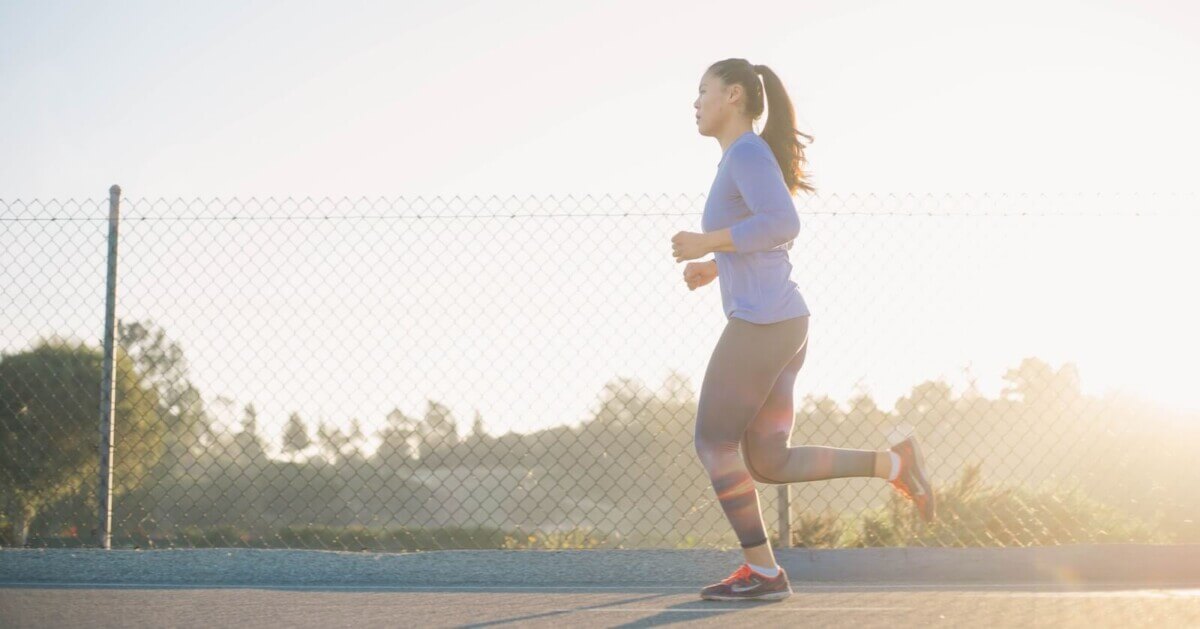
Woman jogging on a sunny day (Photo by Andrew Tanglao on Unsplash)
NEW YORK — Struggling to eat right and exercise? A perfect summer day may be all the motivation you need. A poll of 2,000 U.S. adults revealed that 75 percent feel more encouraged to be healthy if the weather is perfect, and many add sunshine plays a vital role in them feeling their best.
Sunny skies (46%) and warm temperatures (45%) were found to be the “healthiest” weather conditions, but if it’s storming or humid (10%), Americans are more likely to fall back into unhealthy habits. Over four in five (84%) agreed being outside gives them more energy to do the activities they love, and 49 percent feel at their most physically active during the summer months. A similar 42 percent feel at their healthiest during the summer, as well.
During the summer, respondents said they tend to prioritize a healthier diet (51%), regular exercise (48%), and taking daily vitamins (45%). Meanwhile, cold and wet months during the winter are when people feel the unhealthiest (59%) and are less physically active (60%).
Commissioned by vitamin-enhanced water brand ShineWater and conducted by OnePoll, the study found summer isn’t just the season they feel at their physical peak — it’s also when they are more attentive to what nutrients their bodies need.
Eighty-one percent of Americans said they take vitamins; the most popular being vitamin D (39%), vitamin C (39%), vitamin B (33%), vitamin A (26%), and iron (22%). Vitamin D plays a special role in the summer, as 42 percent claim they are actually more likely to think of their vitamin D needs during the hotter months.
How people get their vitamins and nutrients is another story. The poll finds that 81 percent would prefer a snack or beverage that provides a daily serving of vitamins, 56 percent prefer to get their nutrients through food and beverages, and only 26 percent prefer tablets or pills.

Out of the respondents who said they take vitamin D on a daily basis, 20 percent believe they still aren’t getting the amount they need. In fact, 48 percent said they can tell whether or not their body is lacking in any specific nutrient.
“It’s easy to understand why people want to incorporate vitamins into their daily routine, but would rather avoid taking them as a pill or tablet,” says Chief Marketing Officer at ShineWater, Ryan Coon, in a statement. “Grabbing a drink or snack that not only tastes great and is convenient, but also addresses daily vitamin intake, is a win-win. It’s a simple and delicious way to ensure your body gets the nutrients it needs.”
Results found 57 percent of Americans are influenced to try new vitamins and supplements based on medical advice from their doctor, and just as many who take vitamins regularly claim they know exactly the functions of all the vitamins they take.
Nearly half (48%) claimed they know they’re getting enough of all the vitamins they take on a regular basis, but a wide gap of knowledge still exists for many — 26 percent noted they do not know if they are getting the right amount of vitamins and 30 percent admitted they were only somewhat aware of what vitamins do for them.
Meanwhile, 26 percent have no idea if they’re getting enough of the nutrients they need. When asked, people said they could probably use more vitamin C (36%), vitamin D (35%), vitamin B (32%), and calcium (29%).
“Getting all the vitamins your body needs shouldn’t be a difficult task,” continues Coon. “The easier and more accessible nutrients are to consume, the easier it is to get the motivation to get active and prioritize your health in the summer.”
Survey methodology:
This random double-opt-in survey of 2,000 general population Americans was commissioned by ShineWater between June 9 and June 13, 2023. It was conducted by market research company OnePoll, whose team members are members of the Market Research Society and have corporate membership to the American Association for Public Opinion Research (AAPOR) and the European Society for Opinion and Marketing Research (ESOMAR).










